Translations
Hanna Stiegeler (1985, Germany) lives and works in Berlin. Her practice engages with found and self-produced imagery to dissect visual culture and its ties to commerce, history and femininity. By appropriating photographs from commercial and public archives and adopting their visual language in her own works, she creates screenprints through a manual, deliberately imprecise process. These unique versions of otherwise reproducible images reveal the hidden narratives, labors, and contradictions embedded in their sources. Stiegeler’s second solo exhibition at Sweetwater, Berlin will take place in 2026, alongside her first institutional solo exhibition at E-Werk Freiburg. Her work has also been included in group exhibitions at Eigen+Art, Galerie Thomas Schulte, Gems NYC, and the Goethe Institut Paris.
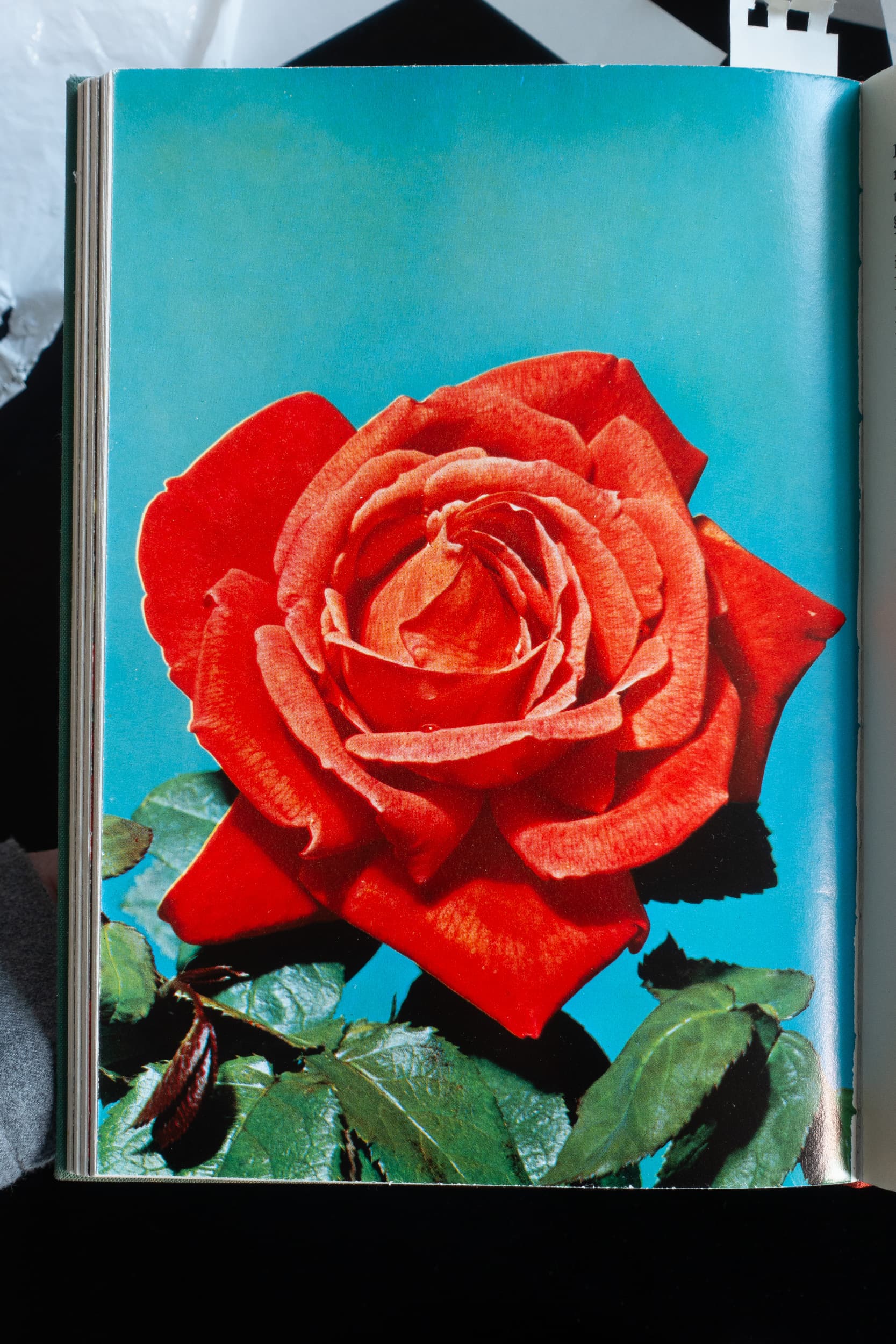
I grew up in an open and quite chaotic house, filled with objects and books from different periods, seemingly surfacing or disappearing by themselves. The book that contains the images shown here is a handbook of roses, printed in 1968 in Switzerland in letterpress and copper intaglio printing. It holds characteristics of transfers between subject and print that always get me, as a consumer and as a producer of art. My vision examines the borders and offsets of the different plates used, and how the planar surfaces set in. My mind questions what was there originally, what the cameras’ chemical process made of it, and how the halftone screen of the print affected these qualities. Translations.
I repeatedly stumbled across this publication over a span of maybe 10 years, and each time I was immediately absorbed by the presence of these images. There is a quality to the way the light renders the petals, surfaces and colors of the roses. It has an utterly hyperrealistic effect that gives them a lively appearance and a sensual lure. At the same time, the perfected representation of the rose in this 1960s manner of image production has something eerie to it. My mind involuntarily tries to make sense of the reductions and the exaggerations. I like to be in that uncertain state of perception, as if I need to verify my vision and further the immediate adjustment that takes place in doing so. For a time, I stored this book in a place where I could find it again, coming back to the pages just for the pleasure of looking, where I am in a state before language and in direct confrontation.
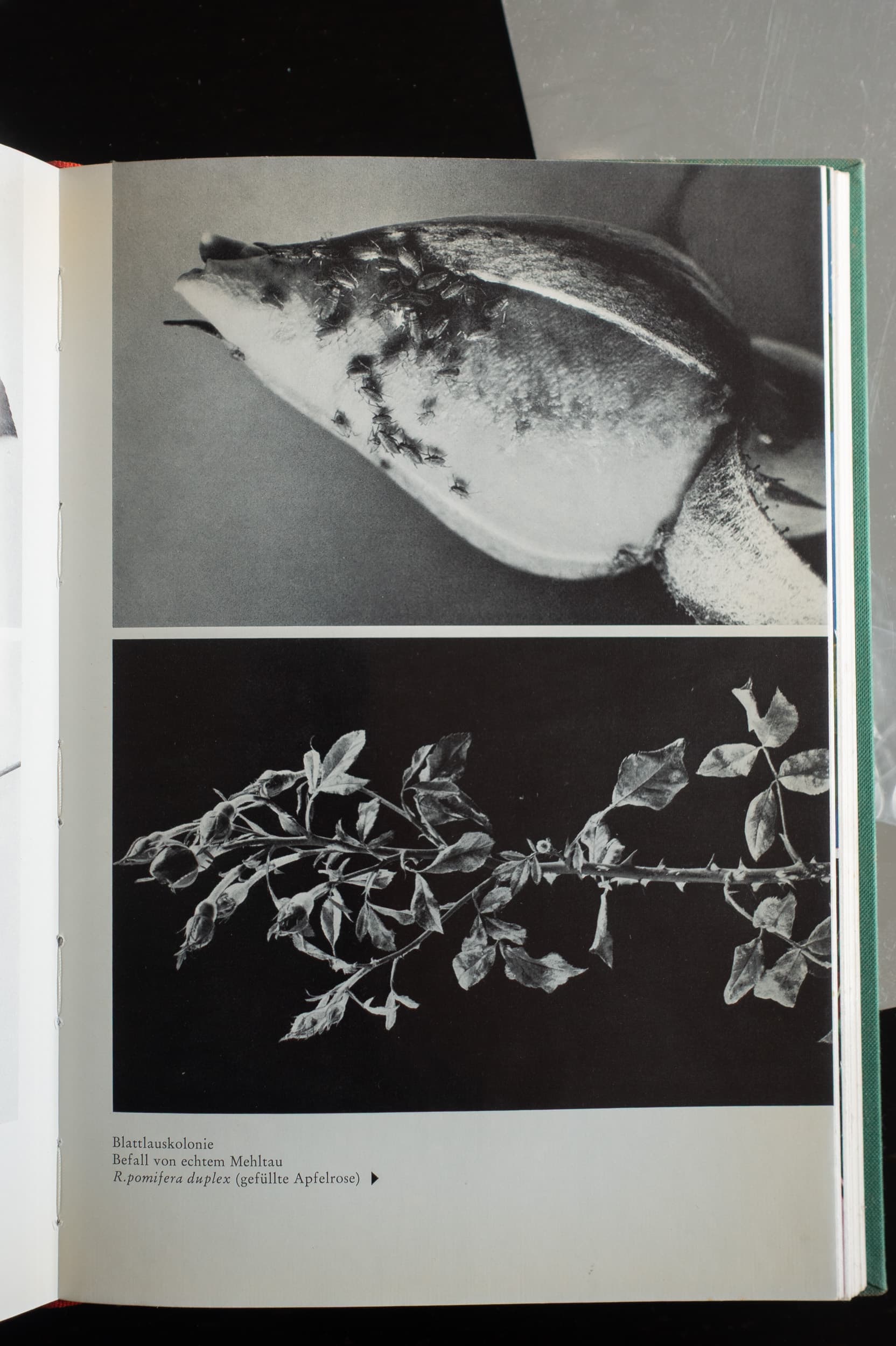
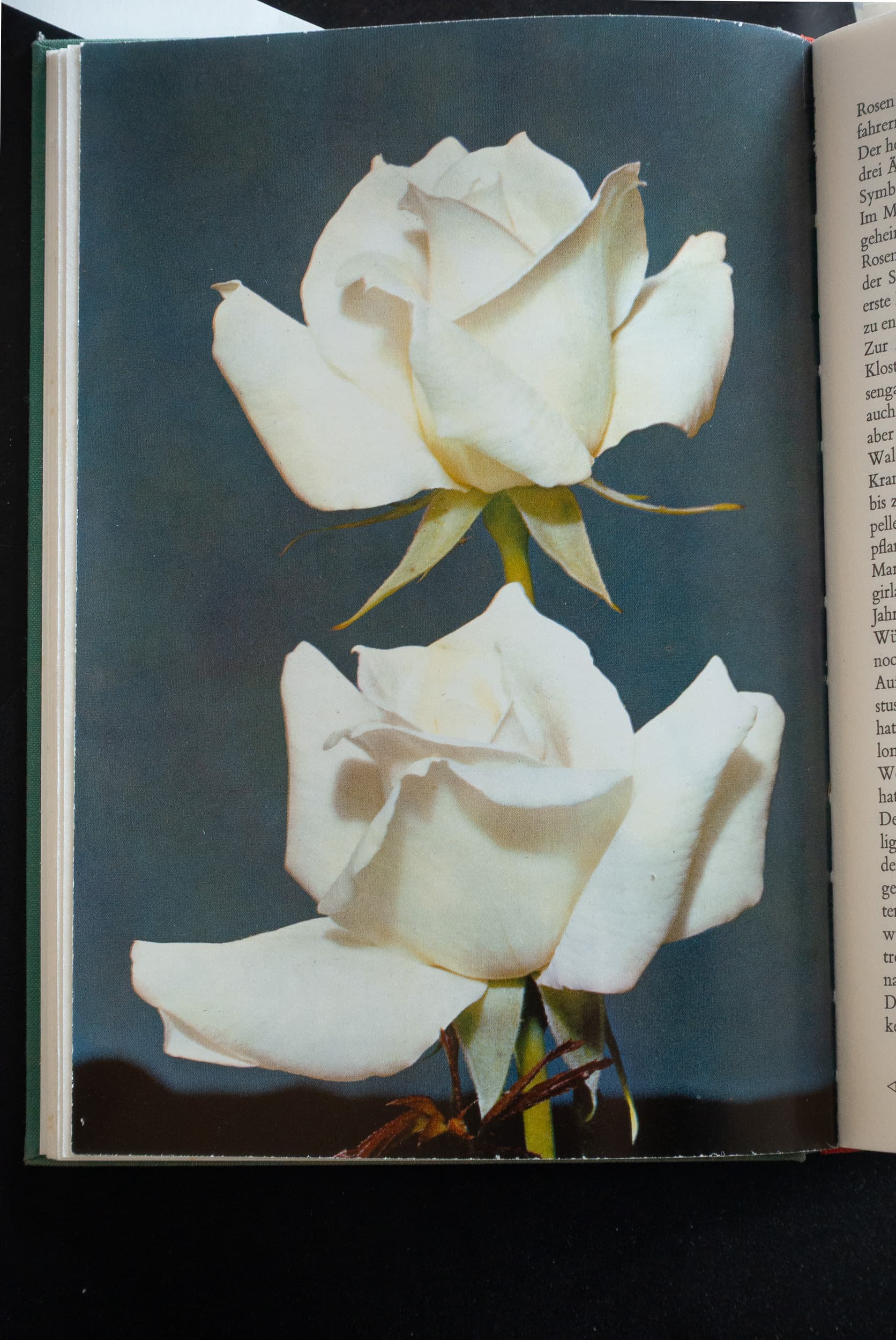
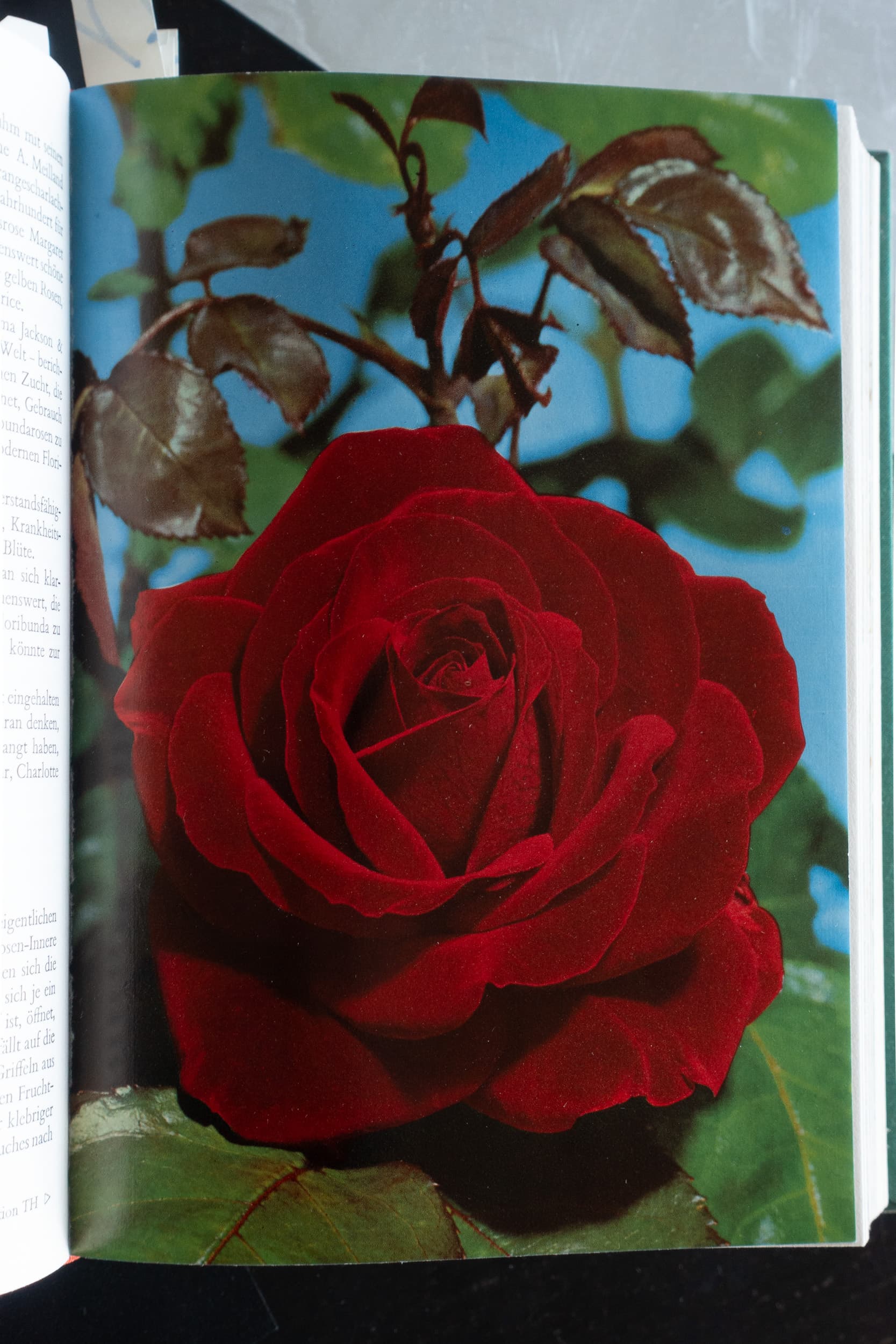
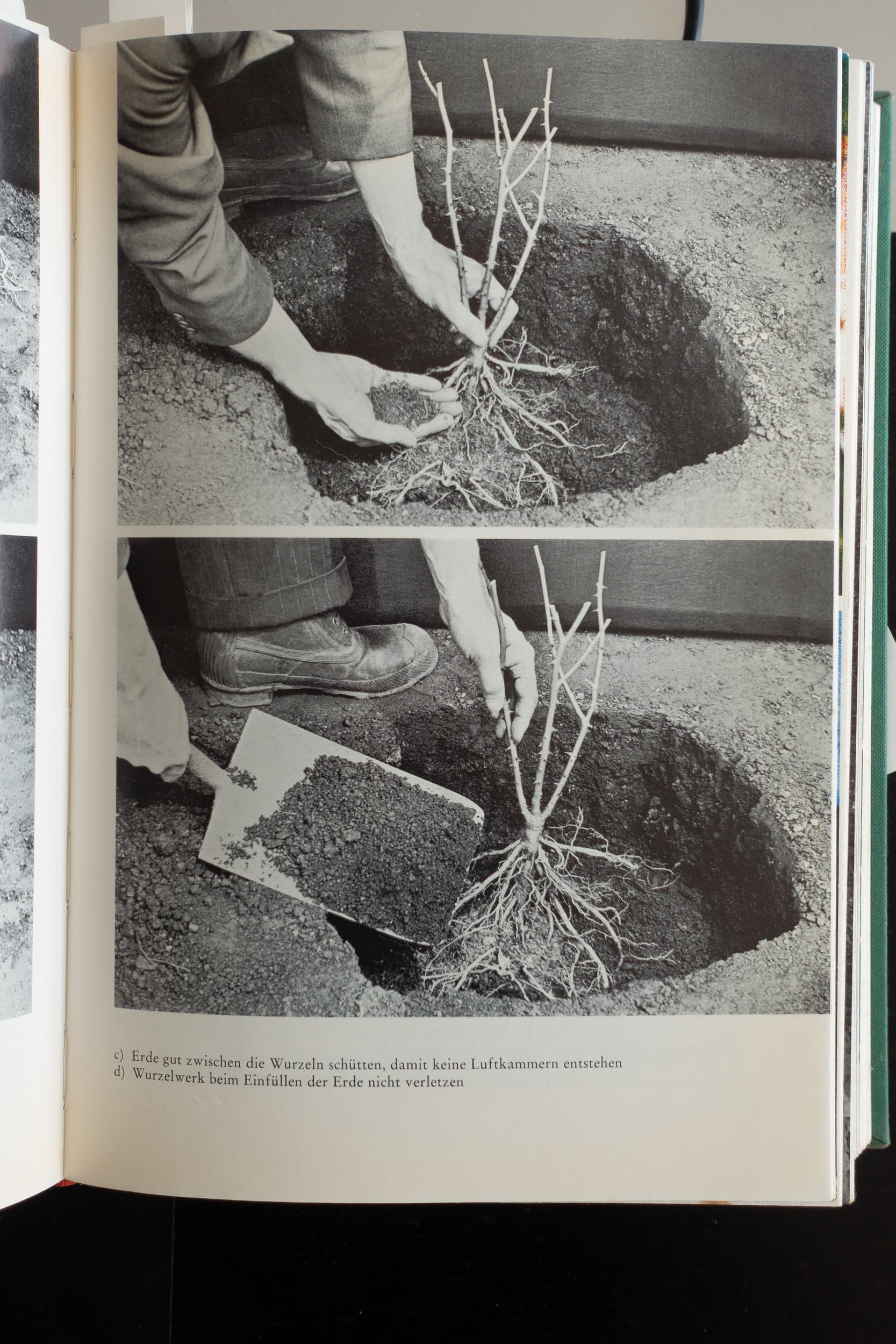
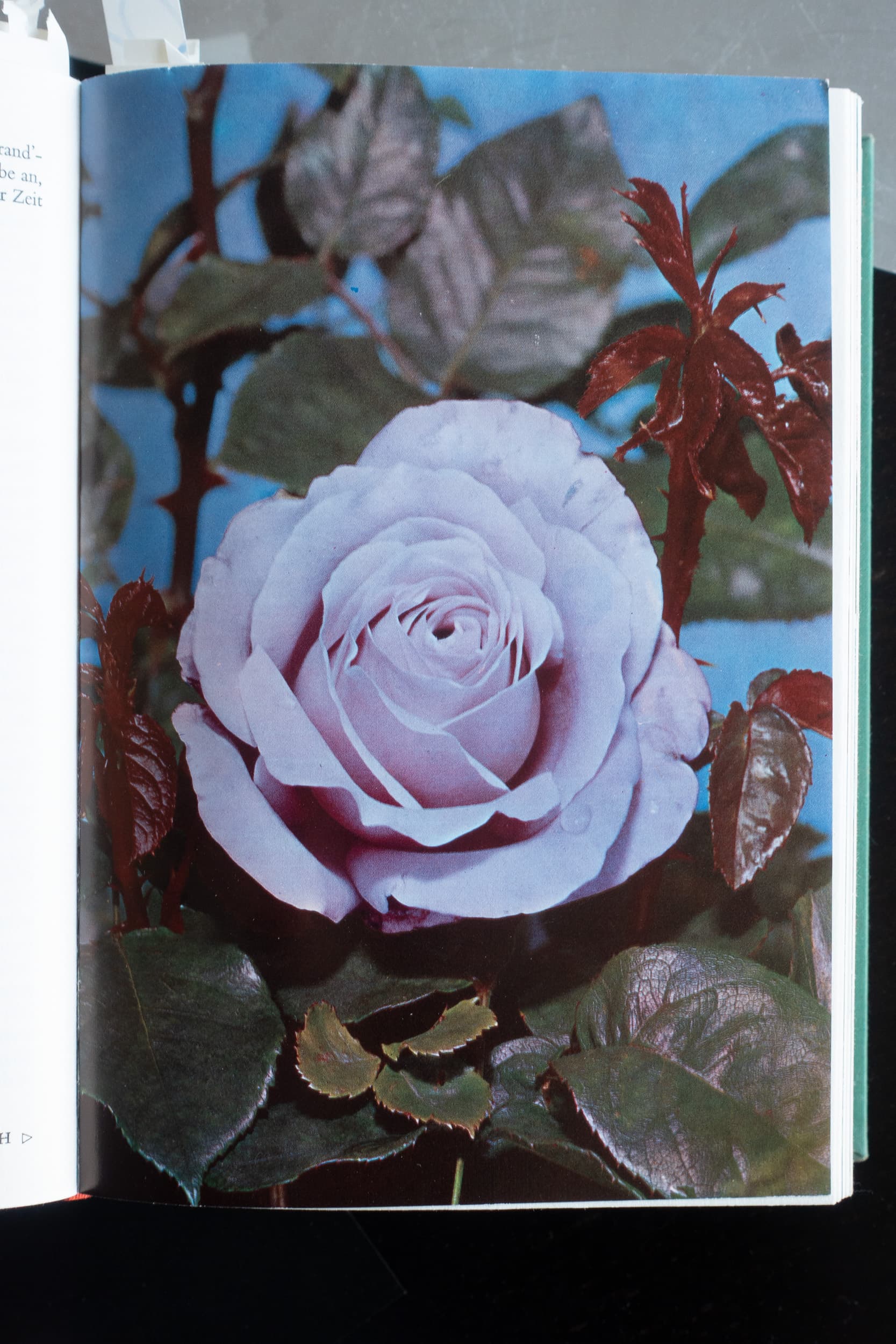
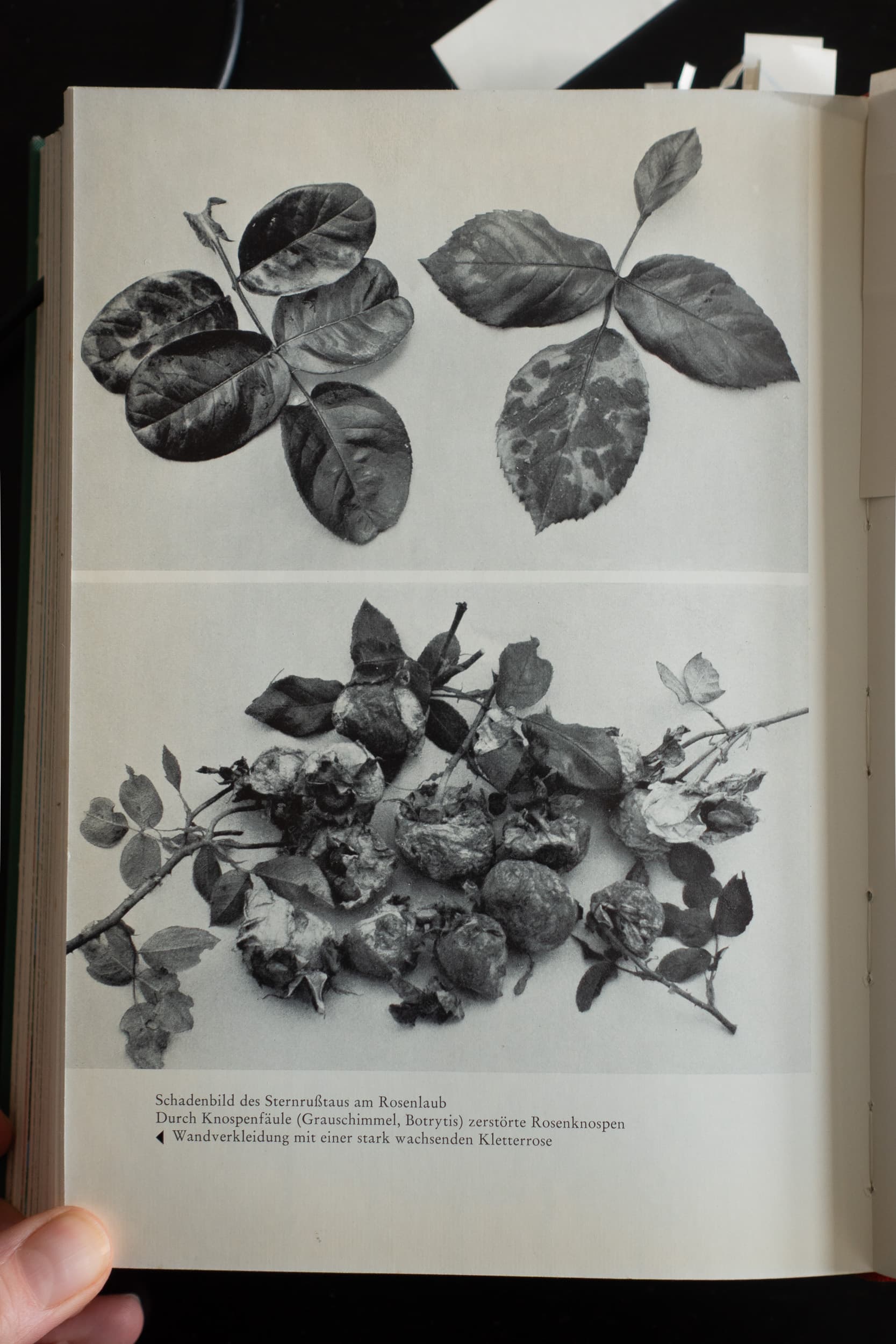
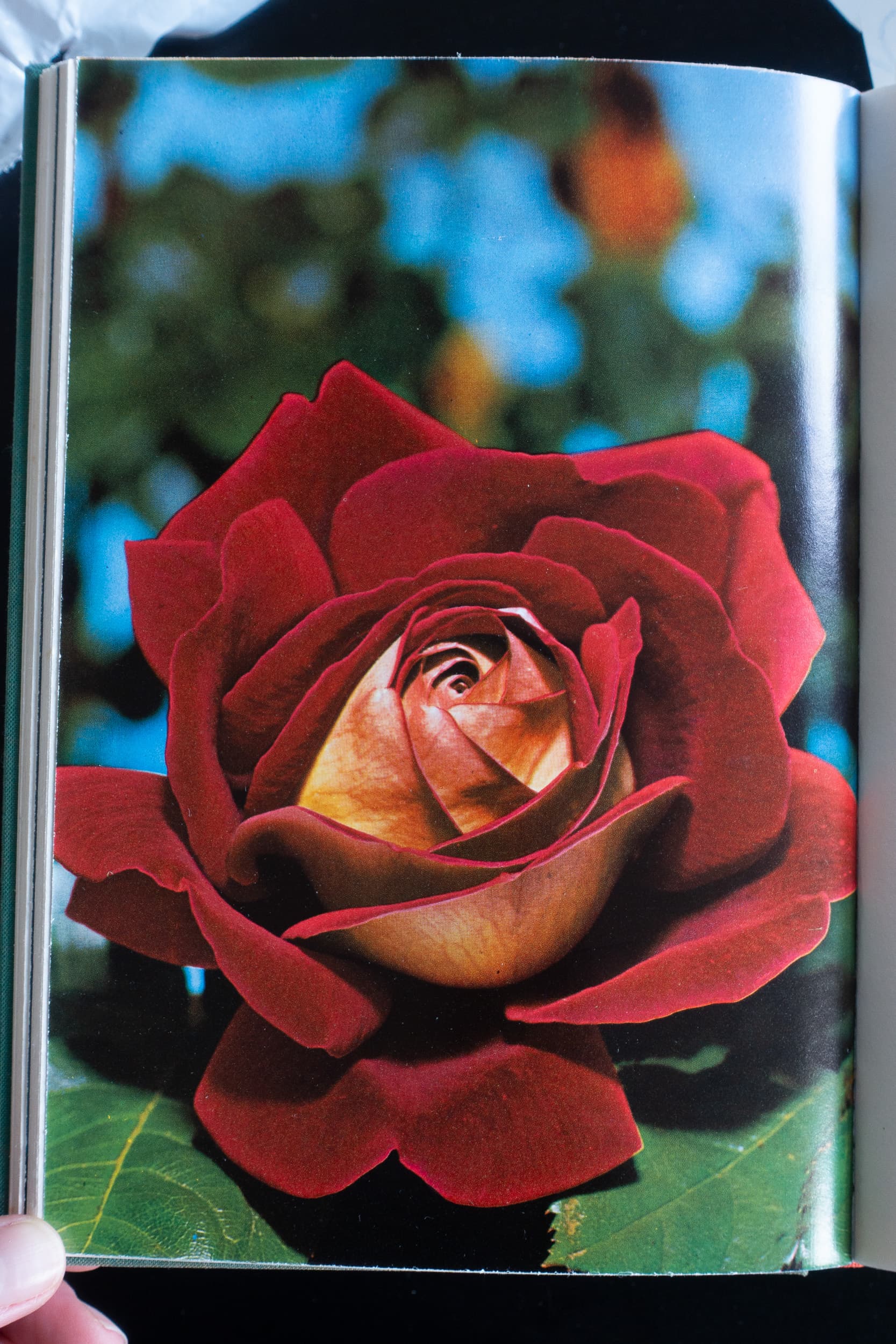
Translations
finanziato dall'Unione Europea - Next Generation EU